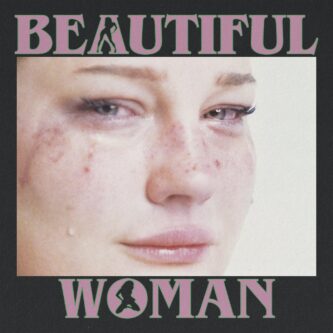Music Review: Swedish indie folk singer Sarah Klang’s ‘Beautiful Woman’ is stunning
By Canadian Press on February 3, 2025.

NASHVILLE, Tenn. (AP) — In a clipped Nordic accent, Swedish indie folk singer Sarah Klang politely asked the soundboard operator at Nashville’s Blue Room to turn up her microphone. The request, made recently during a rare U.S. performance in the intimate music space attached to Jack White’s Third Man Records, seemed entirely unnecessary.
Her voice could fill every crevice of the room, even if she used no microphone at all. Live, just as on record, her tone pins you down and holds you the moment she opens her mouth.
On her fifth album, “Beautiful Woman,” out Friday, Klang worked for the first time with American producer Eric D. Johnson, known for his work with Bonny Light Horseman, the Fruit Bats and the Shins. It’s a winning partnership that lands somewhere between folksy Americana and ’90s jangle-pop, set apart not only by Klang’s voice but also by her honesty.
“Practicing every night / How to dance in slow motion,” she sings on the title cut. “Writing in my diary, goals for the new year / 16 and alone in my room.”
Klang leans into the song’s chorus with characteristic directness. “When I grow up,” she sings, “I want to be a beautiful woman.”
If wistfulness had its own voice, it might sound like her. Klang manages to convey pain even when she is singing about finding happiness, as she does on several cuts here. Few singers blend hope and sadness into such a rare mix of intensity: Billie Holiday, Hank Williams, Judy Garland, Patsy Cline, Amy Winehouse. The list isn’t long.
That may sound like hyperbole for a singer from Sweden who has gained a following in Europe but hasn’t made her mark across the ocean yet. Still, it seems inevitable that she will.
On this album, Klang details body-shaming, motherhood and her own arduous journey in a world that holds women to impossible standards.
“Nothing tastes as good as feeling skinny / I was told when I was young,” she sings on “Other Girls,” a not-so-subtle reference to a quote frequently attributed to supermodel Kate Moss.
The words come slowly. Klang’s voice sinks into her own rigorous journey to self-acceptance without seeming preachy or pedantic. It rises toward the majestic closing anthem, “I Have Everything,” but every note she sings tells you the outcome is no sure thing.
“Could I wake up tomorrow / And put some music on,” she sings, “I would smile at my daughter and tell the sorrow I’ll be gone / ’Cause you see I have everything I want.”
My path to Klang’s music started with my 20-something daughter, who included some of Klang’s earlier work on a couple of Spotify playlists. The first few times her songs came up, I inevitably asked: “Who is that? Where is she from?”
The answers are all right here.
Her name is Sarah Klang. She comes from Sweden. And she has arrived.
Scott Stroud, The Associated Press
18-17


